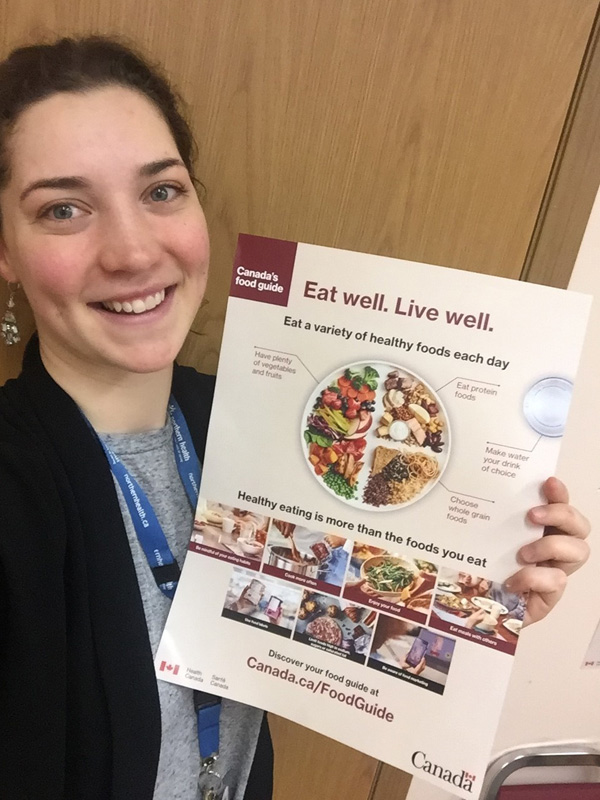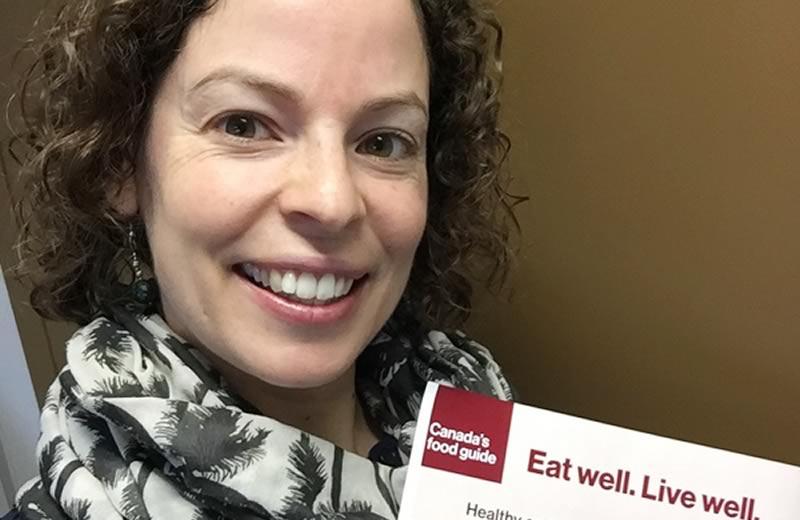No doubt you’ve heard: Canada’s new food guide has finally been released. With a brand new look (bye-bye rainbow!) and recommendations going beyond food choices, it has already caused quite a bit of conversation!
Wondering about Northern Health’s (NH) take on all the excitement? We polled NH dietitians to hear what they like about the new resource. Read on for what they had to say:
“I like that the new food guide emphasizes the importance of how we eat. Our relationship with food and how we enjoy our meals is as important as the nutritional quality of the foods we’re eating.” -Courtenay Hopson, Prince George
“I appreciate the clear picture on the guide. The fruits and vegetables are easily recognizable and are available in Canada. It features canned and frozen options, in addition to fresh, as at certain times of the year these can be cheaper and easier to find.” -Rebecca Fraser, Vanderhoof
“Canada’s new food guide is simple, to the point, and leaves room for each of our own unique diets – how fresh! It promotes a more normalized way of thinking about food and nutrition, and helps reassure Canadians that if they’re cooking at home and enjoying food, then they are likely eating fairly well. My takeaway? Let’s make meal times important again!” -Olivia Newton, Quesnel

“I love that the new food guide emphasizes plant-based proteins. This will have positive results for personal health, but also supports eating patterns that are more environmentally sustainable.” -Danielle Billey, Terrace
“The new food guide is practical and focuses on HOW to eat by supporting a positive eating environment. It’s important to cook and eat with others, be mindful around your eating habits, and truly enjoy your food.” -Erin Branco, Prince George
“I like that industry-funded research did not inform the development of the guide. This goes a long way to increase the trust the public has in the recommendations.” -Judy April, Dawson Creek
“The new food guide focuses on how we eat, more than how much we eat, supporting clients to tailor actions based on their preferences and lifestyle. It’s about implementing small changes to enjoy a variety of healthy foods in meaningful ways.” -Amelia Gallant, Fort St. John
“I like that the new food guide emphasizes food skills and ways to minimize food waste. It also considers other environmental impacts of the foods we choose and encourages more plant-based proteins, such as pulses [the family of plants that include dried peas, dry beans, lentils, and chickpeas].” -Hannah Orfald-Clarke, Fort St. John
“The new food guide supports people to start where they are at and to make small sustainable changes. For example, ‘cook more often’ will mean different things to different people – it might mean starting to cook, cooking on the weekend, cooking every day, or cooking with your kids or grandkids more often, depending on your current practices and available resources and opportunities.” -Flo Sheppard, Terrace
“The new food guide reflects that there is no one way to eat. Enjoying food with others is important, and a wide variety of foods fit within a healthy eating pattern.” -Laurel Burton, Prince George
Well, there you have it – Northern Health dietitians think there’s quite a bit to like about the new food guide! We might also take this opportunity to remind folks that it’s a guide, and that dietitians can be great support for individuals with unique nutritional needs who would benefit from tailored recommendations.
Are you looking for support from a dietitian?
- There are dietitians in various communities across Northern Health. A referral may be required.
- BC residents can also access Dietitian Services at HealthLink BC, by calling 8-1-1 (or 604-215-8110 in some areas) and asking to speak with a dietitian.














Comments